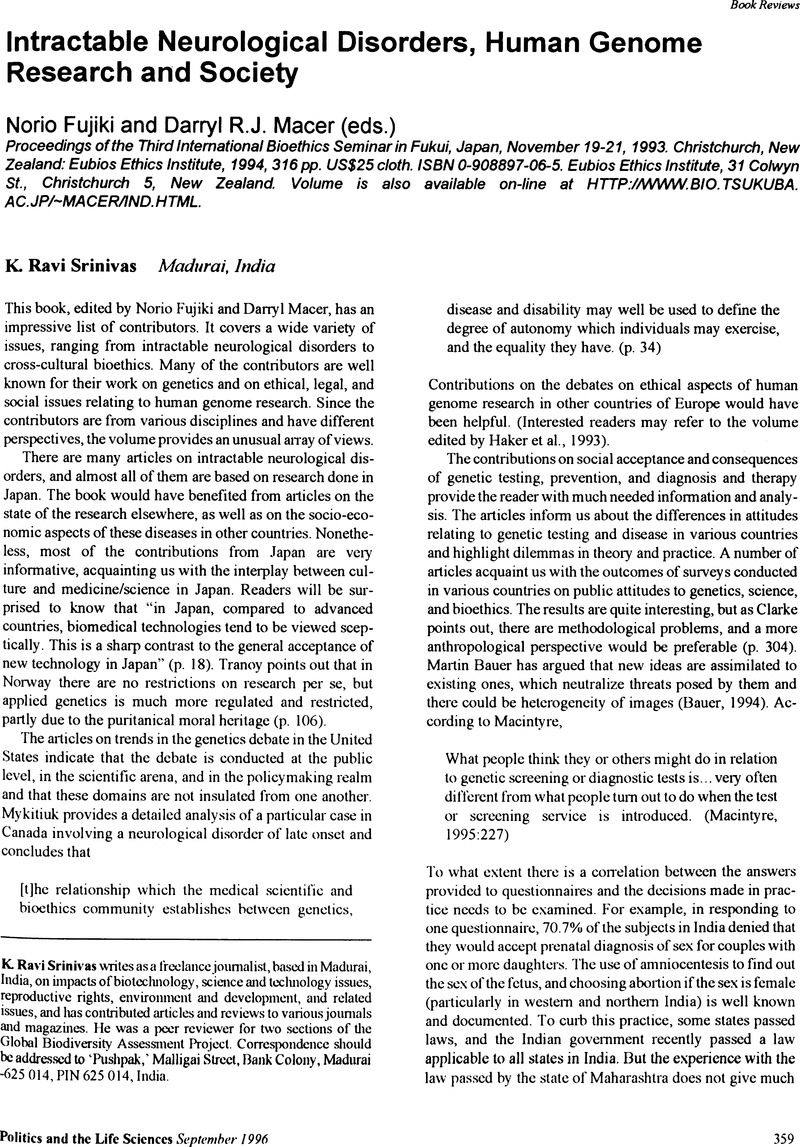No CrossRef data available.
Article contents
Intractable Neurological Disorders, Human Genome Research and Society. Norio Fujiki and Darryl R.J. Macer (eds.). Proceedings of the Third International Bioethics Seminar in Fukui, Japan, 11 19–21, 1993. Christchurch, New Zealand: Eubios Ethics Institute, 1994, 316 pp. US$25 cloth. ISBN 0-908897-06-5. Eubios Ethics Institute, 31 Colwyn St., Christchurch 5, New Zealand. Volume is also available on-line at HTTP://WWW.BIO.TSUKUBA.AC.JP/~MACER/IND.HTML.
Published online by Cambridge University Press: 17 May 2016
Abstract
An abstract is not available for this content so a preview has been provided. Please use the Get access link above for information on how to access this content.

- Type
- Book Reviews
- Information
- Copyright
- Copyright © Association for Politics and the Life Sciences
References
Bauer, M. (1994). Popular Science as “Cultural Immunisation.” London: Science Museum. Mimeograph.Google Scholar
Haker, H., Hearn, R., and Steiglader, K., eds. (1993). Ethics of Human Genome Analysis: European Perspectives. Tubingen: Attempto Verlag.Google Scholar
Keller, E.F. (1991). “Decoding the Human Genome Project: An Interview with E.F. Keller” (Interviewer: Larry Casalino). Socialist Review 21(2):111–28.Google Scholar
Landstrom, C. (1993). Something Wicked This Way Comes: Germans Resisting Human Genome Research. FS II 93–108. Berlin: Social Science Research Center Berlin (WZB).Google Scholar
Macintyre, S. (1995). “The Public Understanding of Science or the Scientific Understanding of the Public? A Review of the Social Context of the ‘New Genetics.”’ Public Understanding of Science 4(3):221–32.CrossRefGoogle Scholar
Murphy, T.F. (1993). “The Human Genome Project and the Meaning of Difference.” In Murphy, T.F. and Lappe, M.A. (eds.), Justice and Human Genome Project. Berkeley, CA: University of California Press.Google Scholar


